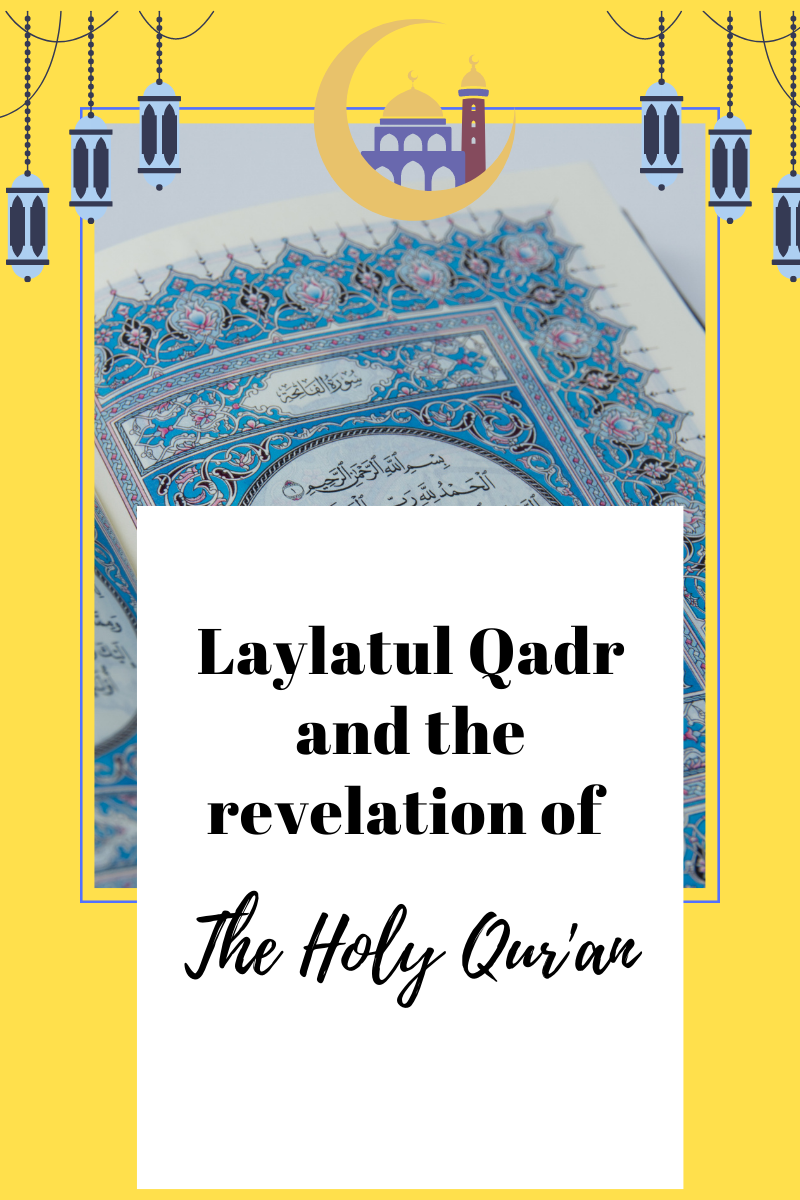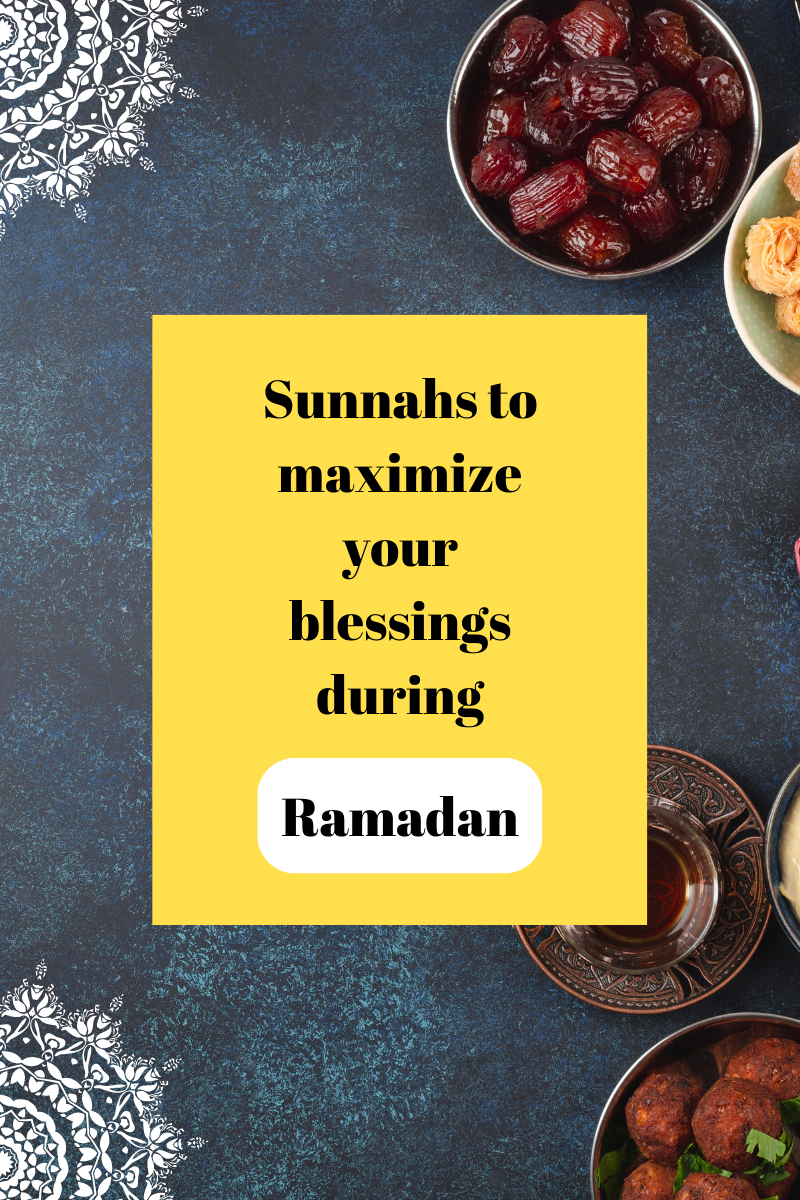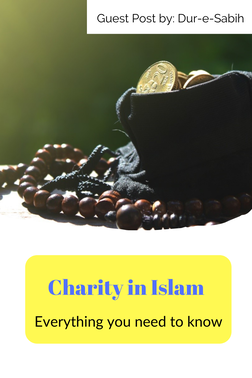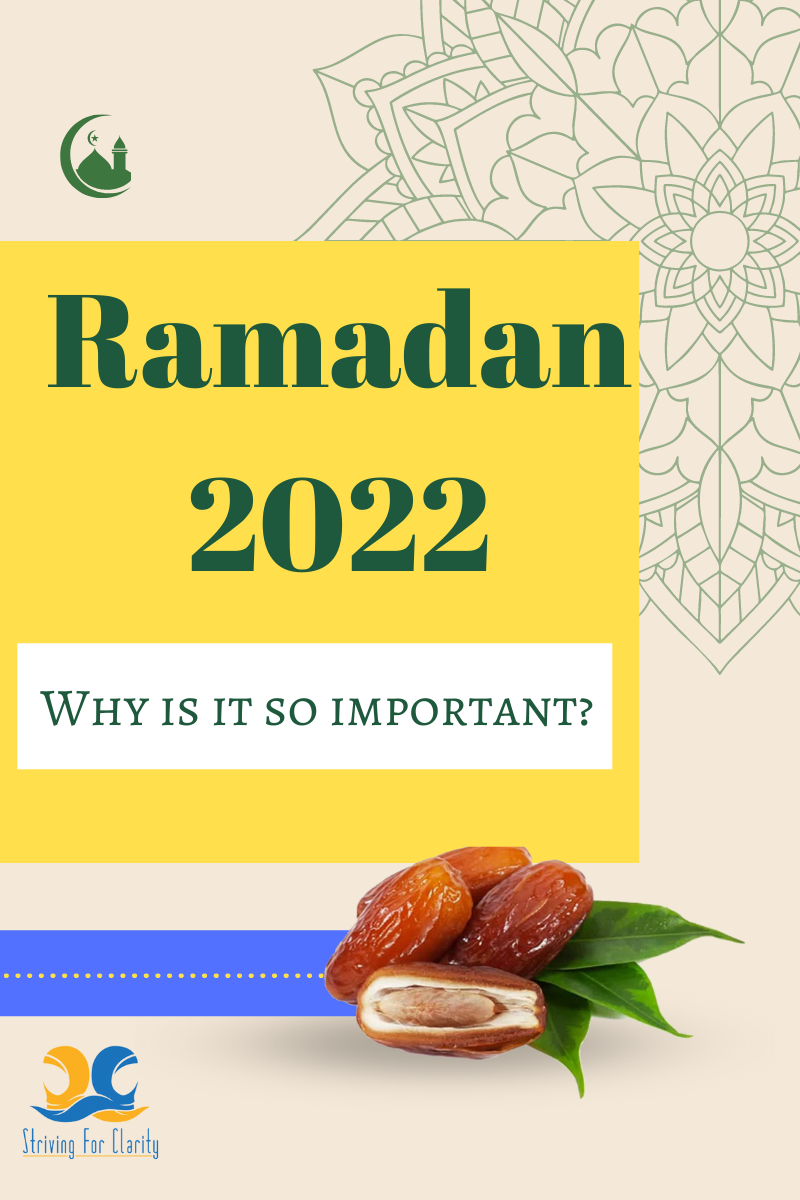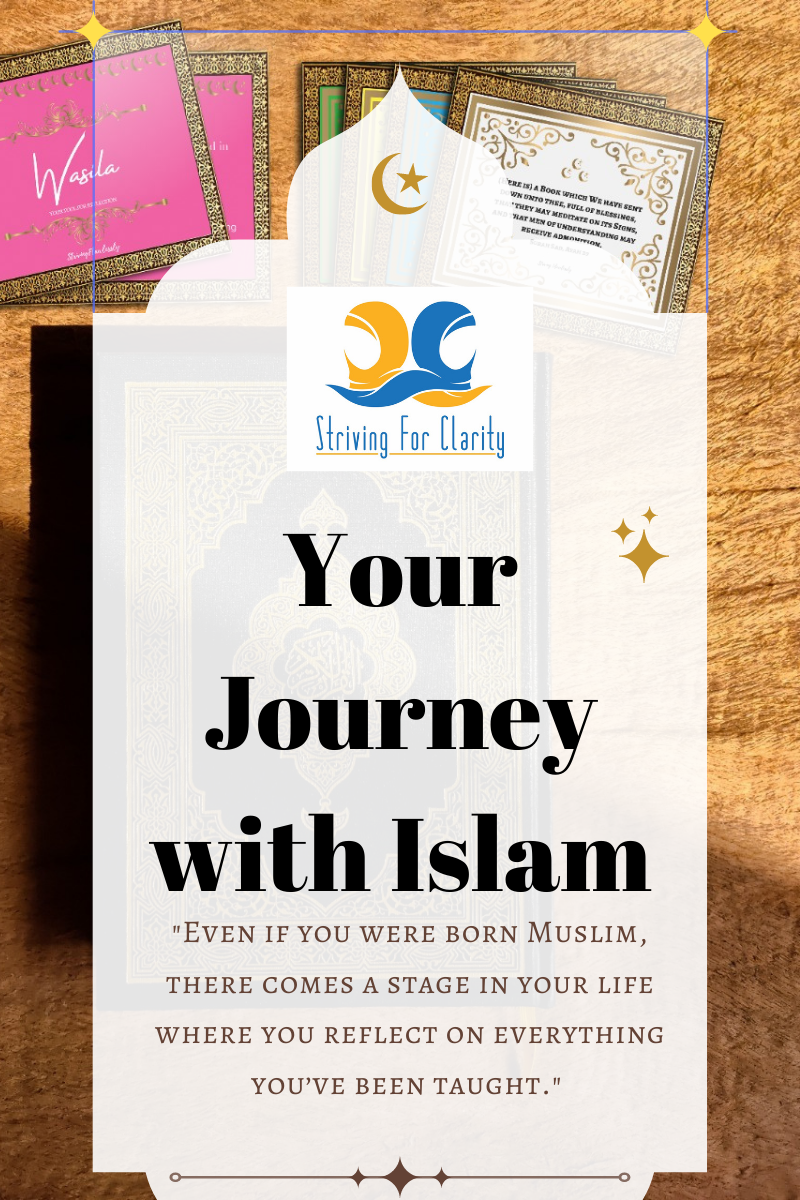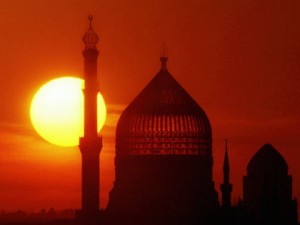|
What does Laylatul Qadr mean? The meaning is vast and encompasses its literal translation (“the night of Power" or "Night of Decree") as well as being the night in which the Holy Qur’an was first revealed. Muslims believe that this auspicious night takes place on one of the odd nights in the last 10 ten days of Ramadan. This is mentioned in an authentic hadith: Narrated by Aisha (RA): Prophet Muhammad (PBUH) said, “Search for the night of Qadr in the odd ten nights of the last ten days of Ramadan.” The Significance of Layaltul Qadr
0 Comments
Ramadan is a sacred month for Muslims. Observing Ramadan through fasting is a compulsory form of worship that reaps some of the highest rewards. Allah (SWT) commands us in the Holy Qur’an: “O ye who believe! fasting is prescribed to you as it was prescribed to those before you that ye may (learn) self-restraint.” (Surah Al Baqarah: Ayah 183). To make the best of Ramadan and to maximize the blessings we receive from observing it, there are numerous Sunnah that can help you attain greater closeness to Allah (SWT). Below are a few: 1. Increasing your Charity While it is incumbent on every Muslim (who can afford to do so) to pay their Zakat-ul-Fitr in order for their fast to be accepted, being extra generous during this month through voluntary acts of charity is highly desirable. Ibn 'Abbas said, "The Messenger of Allah, may Allah bless him and grant him peace, was the most generous of people in giving charity. He was even more generous in Ramadan when Jibril, may Allah bless him and grant him peace, used to meet him. Every night of Ramadan, Jibril used to come to him and the Messenger of Allah, may Allah bless him and grant him peace, would read the Qur'an to him. When Jibril came to him, the Messenger of Allah, may Allah bless him and grant him peace, was more generous in giving charity than the blowing wind." It was widely known that Prophet Muhammad (PBUH) was even more generous during the month of Ramadan and he is the ideal example for us to follow.
The importance of charity is emphasized several times in the Holy Quran. Take care of your fellow human beings, be they travellers, poor, needy, or relatives. While Zakat is a fixed amount of charity that is obligatory (to be given to the less fortunate); Sadaqah can also be given as little or as much as you can to bring ease to someone. The beauty of Islam lies in this hadith, as narrated by Anas ibn Malik, the Prophet (SAW) said: ''You will not believe until you love for your brother what you love for yourself'' (Jami` at-Tirmidhi 2515). This hadith embodies how Islam promotes a healthy environment, love, and compassion for one another. Sadaqah for Allah SWT Delight We give charity not for the fame or pleasure of our own but for the Almighty. Allah tells us to give charity, not to show off, but to help people for the Almighty reward. In Surah Al-Baqarah, He says: ''Those who spend their wealth in the cause of Allah and do not follow their charity with reminders of their generosity or hurtful words—they will get their reward from their Lord, and there will be no fear for them, nor will they grieve.'' (2:262) You can learn more about the forbidding of show-offs on Islamic Finder.
We are requested not to ask for a thank you or the gratitude of the person to whom we donate. Since it is entirely for the pleasure of God, we ask Him for reward and acceptance. Each year, Muslims around the world celebrate the commencement of Ramadan. There’s a feeling in the air like no other. The sacredness it brings is undeniable. Why is this month so important to Muslims? O ye who believe! fasting is prescribed to you as it was prescribed to those before you that ye may (learn) self-restraint. - Surah Al-Baqarah: Ayah 183 As Muslims, we follow the Qur’an and the Sunnah. Allah (SWT) commands us through a few verses in the Qur’an to observe the month of Ramadan and the reasons as to why Fasting is prescribed to us. It therefore becomes an obligation for each and every Muslim, with a few exceptions such as those who are ill and those who are travelling. At the commencement of Ramadan, Muslims Fast every day from dawn until dusk as a means of self purification for the mind, body and soul. However, there is so much more to this Holy Month with the Ummah making the most of the benefits and rewards it brings. The revelation of the Qur’an The Qur’an was revealed to Prophet Muhammad (PBUH) at the cave of Hira during the month of Ramadan. The Angel Jibra-eel (Gabriel) commanded our Prophet Muhammad (PBUH) to recite a verse from the Qur’an and would go on to revise with him every night during the month of Ramadan. Allah (SWT) commanded Prophet Muhammad (PBUH) to recite and teach the Qur’an to people, where they in turn would learn and teach it to others. The best of you are those who learned the Qur’an and taught it (to others). - Hadith As rewards are increased during this blessed month, it is the ideal time to spend more time reciting and reflecting on verses of the Qur’an. To gain a deeper understanding on why the Qur’an serves as a gift to humanity, we encourage you to read one of our previous articles titled: “Qur’an and reflecting” and to also take time to look at our Wasila Cards which contains Qur’an verses to reflect on The purpose of Fasting Muslims fast every year during Ramadan to attain piety and become closer to Allah (SWT). This is done by purifying the soul through abstaining from sin and cleansing the body by abstaining from food and drink from dawn until dusk. It is a commandment of Allah (SWT) in the Qur’an and therefore becomes obligatory on every Mukallaf Muslim that is in good health. Anything that is made obligatory directly from Allah (SWT) becomes the most important aspect of a Muslim’s life. In addition to Fasting during the month of Ramadan being a commandment by Allah (SWT), the benefits it reaps include: Spiritual Reflection and growth Fasting during the month of Ramadan increases Taqwa (consciousness of Allah SWT). As we refrain from eating and drinking during the day, we train our bodies to become disciplined and to avoid self-indulgence. As we become more discplined with food and drink, it creates a consciousness of refraining from over-indulgence in other aspects too – i.e. refraining from seeking happiness in worldly pleasures and focusing on spiritual reflection and growth. This is where true happiness lies as you become grateful with less and focus more towards preparing for the after life. With increased Taqwa comes increased spiritual reflection and growth. As Fasting is a way of cleansing the body, it opens our mind more and we start reflecting on how we can become better Muslims. As we reflect, we seek forgiveness for our wrongdoings, seeking emancipation from our past sins and asking Allah (SWT) for protection and guidance so that we can strive towards becoming better Muslims with each day. Increased Rewards and Blessings Ramadan is a great opportunity to maximize on the blessings that comes with this month. A few hadiths that mention the increased rewards and blessings this month brings : The Messenger of Allah (saw) said, "When the month of Ramadan starts, the gates of the heaven are opened and the gates of Hell are closed and the devils are chained." - Hadith Narrated Abu Huraira(r.a): The Messenger of Allah (saw) said:"... whoever fasts during Ramadan out of sincere faith and hoping to attain Allah's rewards, then all his past sins will be forgiven. - Hadith The Messenger of Allah (saw) addressed his companions on the last day of Sha`ban, saying, "Oh people! A great month has come over you; a blessed month; a month in which is a night better than a thousand months; month in which Allah has made it compulsory upon you to fast by day, and voluntary to pray by night. Whoever draws nearer (to Allah) by performing any of the (optional) good deeds in (this month) shall receive the same reward as performing an obligatory deed at any other time, and whoever discharges an obligatory deed in (this month) shall receive the reward of performing seventy obligations at any other time. It is the month of patience, and the reward of patience is Heaven. It is the month of charity, and a month in which a believer's sustenance is increased. Whoever gives food to a fasting person to break his fast, shall have his sins forgiven, and he will be saved from the Fire of Hell, and he shall have the same reward as the fasting person, without his reward being diminished at all. - Hadith Muslims also observe Laylatul Qadr which occur on one of the last 10 nights of Ramadan. As stated in the Qur’an: We have indeed revealed This (Message) In the Night of Power: - Surah Al-Qadr: Ayah 1-5 Creates a sense of balance Islam is not an all or nothing faith. You have to start from somewhere and build up to where you would ideally like to be. Fasting during Ramadan is a period to start breaking bad habits, increase good deeds and to sustain a sense of balance between making the most of this life while striving for the Hereafter. While Fasting increases your spiritual awareness, it also makes you more alert of the physical world in the sense that the sun in the sky becomes an important observation for Suhoor and Iftar. You become more aware of the times of the positioning of the sun, making you more aware of when each prayer time is. You develop a healthier relationship with food, becoming more grateful for things you may have previously taken for granted. Increase Acts of Charity Another aspect that is highly regarded during Ramadan is to increase charitable acts. Muslims have an obligation towards the less fortunate. Your Fast will not be accepted unless you make your contribution of Zakat al-Fitr (Fitrana) during Ramadan, but before Eid Al-Fitr, so that the less fortunate can enjoy their day of Eid Ul-Fitr as well. As there is the promise of increased rewards and blessings during this Holy Month, Muslims go over and beyond to help those in need, seek forgiveness from the Almighty (SWT) and aim to become better people. May Allah (SWT) guide, protect and forgive us all during this Holy Month of Ramadan and may we sustain the habits of good deeds afterwards In Sha Allah. Written by: Zaghra Savahl
During February, the USA observes Black History Month which serves to not only celebrate the achievements of black people, but to also recognize a more accurate understanding of a past and present that continuously favor oppressive systems. One of the most prominent legacies of these systems are racial injustices against black people. With Muslims currently making up just over 1.9 billion of the worldwide population, racism inflitrated societies around the world and became intertwined in many Muslim communities. The effects of racism is destructive and continues to divide the Muslim Ummah. During pre-Islamic times, slavery was rife. When the Prophet Muhammad (PBUH) spread the message of Islam, Bilal ibn Rabah (RA) became on of his closest companions. The story is well known amongst Muslims due to how the Prophet Muhammad (PBUH) elevated Bilal ibn Rabah (RA) to become his Muazzin as well as his Minister of Treasury, regardless of protests from those who looked down on him. He was of Abyssinian origin which gives us one of the earliest indications of anti-black racism from those who discrimnated against him, despite the revelation of the Qur’an and the teachings of Prophet Muhammad (PBUH) condemning such acts.
The year 2022 is in full swing, Alhamduliellah! While it’s the start of new chapters for many, in this edition, we reflect on the journey with our Deen. How do we navigate the temporary world and all its judgements and criticism while still attaining closeness to Allah (SWT)? Even if you were born Muslim, there comes a stage in your life where you reflect on everything you’ve been taught. If you’ve been blessed with the hunger to seek more knowledge and experience an epiphany of what Islam means to you, it’s the most fulfilling feeling in your entire life. The desire to become a better Muslim starts influencing your every action and you start understanding why Islam is known as a way of life. You might not be perfect, but your intention is strong enough to try to be better with each day. A week ago, I went on Twitter and saw a ton of commentary regarding a certain article where two Muslim women wrote about their decision to stop wearing the headscarf. I generally choose to not comment on such articles but just three weeks prior there was a blog post written by a young Muslimah where she claims that it is perfectly ok to practice Islam without engaging in many of the prescribed duties that Allah(SWT) tells us to and without refraining from what we've been told to refrain from. In essence, her article promotes the idea that one can be a good, practicing Muslim without actually practicing Islam. This blog post(I have chosen to not post the link because I refuse propagate this 'idea' any more that it already has) then spurned a few other blogs posts in support of this 'idea'.
Articles and blog posts such as these just adds to the list of Muslims encouraging each other to sin under the banner of "there's more to Islam than (insert fard action here), it's what's in your heart that matters". The problem with this idea though is that if Islam is truly in your heart, you will do everything within your power to please your Rabb(Lord) and the best way to do that is by doing what He has obligated us to do and refraining from what He had made prohibited for us. As of late, there's a group of Muslimahs encouraging others to pray while on their menses(an act that we all know is forbidden) and another group of Muslims that believe it is optional to recite in Arabic during salah(a practice that's been increasing over the last decade or so). I am extremely saddened by how easy it seems to be for some people to discard parts of the deen. There are many Muslims who tell other Muslims "you can grow to observe hijab, you can start praying all five prayers later, you can stop indulging in the dunya when you're old or after you're married, etc. In the meantime, as long as you love Allah, you're fine. Everything else is just extra". Unfortunately, my fellow Muslimeen, that is NOT the case. Fortunately, observing hijab is not an option. Avoiding tabaruj is not optional. Praying is not optional. Avoiding zina is not an option. Keeping isbaal is not an option either. We've been told what to do by our Lord and RasulAllah(SAW). The only thing left for us to do is to say ok and comply. We can't simply say because our intentions are to please our lord, we can get the same benefits without completing the actual deeds. We must strive harder as an ummah to hold unto deen-ul-Islam instead of hurriedly slipping away. Allah is merciful but we must also be sincere. Of course our deeds alone will not gain us entrance into Jannah but Islam is comprised of the belief in our hearts and the actions of our limbs and we therefore must combine them. As I end this article, I want to leave you all with two reminders: First and foremost, let's remember that our intentions are important but we need to make our deeds match them. If you see someone drowning and just sit there but you had the internal intention to save them, is it the same thing? Secondly, remember that whenever you encourage someone to sin, each time they do the action, you're also incurring their sins. If that alone does not cause you to rethink before telling someone it's okay to take off their headscarf and jilbab, or that it's permissible to drink or that they shouldn't be so "fiqhy", ask yourself if you want to risk receiving their sins. Ask yourself if you're prepared to feel the wrath of your Lord. Yes, Allah is merciful. Yes he is just but to receive his mercy and his justice we have to actually be trying to live in the way that he's told us to live. I am definitely not perfect and constantly striving to improve in my embodiment and practice of Islam. I hope I never get so low in my faith and strength that I start making frivolous excuses for my indiscretions. All in all, we can't cut corners in our faith and expect to receive good from it. May we all be guided appropriately and remain on the Straight Path. ----JMuslimah In The Name of Allah, The Most Gracious, The Most Merciful As many Muslims are aware, the Prophet Muhammad(SAW) is considered to be the 'perfect' man, that is to say that the is as perfect as man can be. It's for this reason that many Muslims look towards him for guidance. There are countless books that mentions his name, including the Holy Qur;an itself and there is no doubt that His Lord loves him tremendously without question. To me, personally he is a role model on how a proper Muslim must conduct himself or herself in every single way. Before I accepted Islam, my life was in complete shambles and disarrayed, there was no role model to give me the proper guidance that I was searching for. Throughout the course of my life, stupid and dumb decisions were made. When a person sincerely starts researching the life of RasulAllah(SAW) you would know why Allah loves him tremendously and therefore why he is held in a very high status with his Lord. Prophet Muhammad (SAW) was a decent, kind, moral human being that was sent as a mercy to mankind. Trust and believe he definitely loved his Lord as well. He was a teacher of the Qur'an, a loving husband, decent loyal companion to his sahabas (May Allah be pleased with them all) a statesman and a Commander in chief of the Ummah's army that fought in may battles that have carried the banner of Islam. He was a strong and devoted servant and messenger on behalf of his Lord. There are many publications that write negative reviews about him. However they don't know him in the same manner that Muslims from around the world do. When I dedicated myself back into Islam the journey to my soul began on a serious quest to find truth and bring solace back into my heart. The more that I research about him, the more one realizes why Allah says in the Qur'an: Say, [O Muhammad], "If you should love Allah , then follow me, [so] Allah will love you and forgive you your sins. And Allah is Forgiving and Merciful." Qur'an 3:31 The Prophet Muhammad (SAW) was an excellent example of how to properly worship Allah(SWT) in the most correct and proper manner that were prescribed to us by Him. While the world is now being lost in decadence of immorality and lack of spirituality, now more than ever mankind needs to return back to the Qur'an and the authentic Sunnah of our RasulAllah (SAW) and therefore follow his examples on how to worship Allah(SWT). Every single Prophet and Messengers of Allah (Peace and blessings of Allah be upon them all) was sent with one single purpose= to worship The one true God without any partners or associates. Allah (SWT) is High above those that associates partners with Him, He and He alone governs the affairs over His subjects in every single way. No one else helps Him and therefore when He rules over the Day of Judgment, He alone will dispense judgment over us. So therefore my fellow believers lets return back to the Qur'an and the Sunnah of His Prophet (Peace and blessings of Allah be upon him) and follow that beautiful example and show the world what the true beauty and essence of Islam is really all about. All throughout the Glorious Qur'an, Allah (SWT) speaks about pass civilizations that have been destroyed due to their wickedness in sin and evil deeds. Yet man is heedless of the signs and continues their downward path in wickedness. Forgetting about Allah (SWT) until death meets up with him. From that point it’s too late for the repentance. As Allah (SWT) states in the Quran "Every Soul shall have a taste of Death" 3:185. Why is Man so heedless of Allah's (SWT) signs? Man is caught up with this dunya and therefore will not reflect on the signs of Allah. He gave us intellect and wisdom, yet we as a people don't used them or ponder over His verses. That's the current state of our generation. As Allah (SWT) made a reference in the Quran that He has brought a nation out of mankind that would be the best in practicing good deeds and forbidding the evil. Now more than ever my fellow Muslims, as believers we need to step our game up and show the world what we are made of.
------Khalid M. Shabazz This article was written by an SFC Guest Contributor. If you'd like to become a Guest Contributor, register your interests here. Many Muslims often struggle to perform religious duties because they are worried about the opinions and reactions of others. I have noticed that often times when I ask someone why they don’t fulfill a certain religious duty(staying away from bars/haraam events, eating halal only, utilizing proper manners, pausing casual interactions to go make salah), their response is usually that they do not want to draw attention to themselves. I have a really good friend and once we were discussing hijab( for women) and she stated that if she were to have a daughter she would not want her to cover to school because she might get made fun of. I also know parents who choose to not have their older children fast during Ramadan when there’s school so that they do not stand out among their classmates. Now as someone who has struggled with not wanting to stand out, I find this to be quite sad. Essentially, when we think that it is okay to not do what Allah(SWT) has told us to do simply because of the opinions of others, we are committing a form of minor shirk. We are saying that the opinions and decisions of the creation are more important than that of the Creator(Audhubillah). In today’s society, there are many people who are throwing aside their deen for the sake of the dunya and worldly affairs and it is important that we strive to uphold our beliefs within ourselves, our friends and our families. It is impertinent that we consistently ensure that we are fulfilling all of our religious duties to the best of our abilities. When we are instructed by Allah(SWT) to do something, we must. Allah(SWT) tell us: The only saying of the faithful believers, when they are called to Allāh (His Words, the Quran) and His Messenger (SAW), to judge between them, is that they say: "We hear and we obey." And such are the successful (who will live forever in Paradise). And whosoever obeys Allāh and His Messenger (SAW), fears Allāh, and keeps his duty (to Him), such are the successful ones.” Qur'an 24:51-52 From this we know that a key component for entering Jannah as well as a major characteristic of a Muslim, of a believer, is one who when they are told that Allah(SWT) or His Messenger(SAW) has instructed him/her to do something, their immediate response is to submit and obey to the best of their ability. Allah(SWT) also reminds us that:
Girl meets boy, girl likes boy, girl is Muslim, boy is not Muslim. They fall in love and want to get married….but it’s haram. Eventually, she finds a way to rationalize it in her head and finds an imam that will perform the nikkah. Girl and boy are now married and will live happily ever after. This scenario is one that is often heard, especially among Muslims in the West. The scenario if a Muslimah wanting to marry a non-Muslim. Based solely on the Qur’an and Sunnah, it is not permissible for a Muslim woman to marry a non-Muslim regardless if he is ahl-al-kitaab(People of the Book-Jews and Christians) or not. A Muslim man may marry a non-Muslim but only if she is from ahl-al-kitaab, is actually practicing and does not engage in shirk. That means that contrary to popular perception, a Muslim man cannot just marry any “Christian" woman, she has to be abiding by the rulings in her book and must not commit shirk which pretty much rules out Catholics and any others who believe in the trinity. If a Muslim man does find this woman and marries her, all kids born from the marriage must be raised Muslim and she must not bring about what is forbidden in Islam into her home. Many scholars also add that it is not recommended for Muslim men to marry non-Muslims in the west because that results in Muslimahs not having someone to marry. So back to the scenario that I presented earlier. Though the imam performed the nikkah(marriage contract) it is not valid under the eyes of Allah(SWT). The couple might consider themselves married but Islamically they are not. That means that any carnal interactions that they have will be considered zina(fornication) and any kids borne of the marriage will belong to the bed. Often times, we Muslims are of the opinion that the permission or ruling of an imam is always correct and supersedes the rulings of Allah(SWT). This is wrong(unless of course you’re into the whole infallible imam thing). Just because an imam says something is okay or halal does not make it so. I've seen imams who condone domestic violence, imams who tell their congregation that saying “bismillah” on non-zabiha meat makes it halal, and imams who think its okay to lead salah late because of his discretion. None of these things are okay under the banner of Islam. Allah(SWT) says: A man slave who believes is better than an unbeliever, even though if he attracts you. Unbelievers do (but) beckon you to the fire but Allah beckons by His grace to the garden (of bliss) and forgiveness, and makes His signs clear to mankind; that they may receive admonition” Qur'an 2:222 |
IntroductionAs humans in this dunya we are inundated by many distractions, misguidance, and falsehoods therefore making life much more confusing and difficult. What are we thinking, saying, observing, and experiencing in our lives? Are we truly living by Islamic ideals? This is where we can choose to actively “Strive For Clarity.” Archives
April 2023
Categories
All
|
 RSS Feed
RSS Feed
